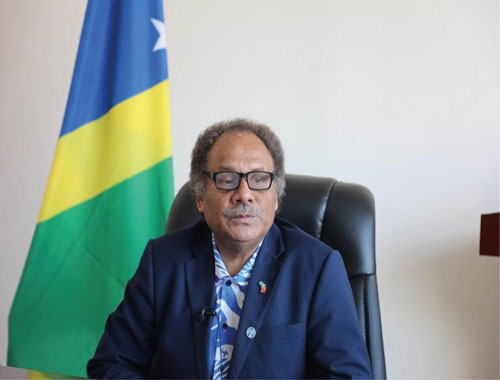North Korea has officially enshrined the right to use preemptive nuclear strikes to protect itself in a new law that leader Kim Jong Un said makes its nuclear status “irreversible” and bars denuclearisation talks, state media reported on Friday.
The move comes as observers say North Korea appears to be preparing to resume nuclear testing for the first time since 2017 after historic summits with then-US president Donald Trump and other world leaders in 2018 failed to persuade Kim to abandon his weapons development.
The North’s rubber-stamp parliament, the Su-preme People’s Assembly, passed the legislation on Thursday as a replacement to a 2013 law that first outlined the country’s nuclear status, according to state news agency KCNA.
“The utmost significance of legislating nuclear weapons policy is to draw an irretrievable line so that there can be no bargaining over our nuclear weapons,” Kim said in a speech to the assembly, adding that he would never surrender the weapons even if the country faced 100 years of sanctions.
Among the scenarios that could trigger a nuclear attack would be the threat of an imminent nuclear strike; if the country’s leadership, people or existence were under threat; or to gain the upper hand during a war, among other reasons.
A deputy at the assembly said the law would serve as a powerful legal guarantee for consolidating North Korea’s position as a nuclear weapons state and ensuring the “transparent, consistent and standard character” of its nuclear policy, KCNA re-ported.
“Actually spelling out the conditions for use are especially rare, and it may simply be a product of North Korea’s position, how much it values nuclear weapons, and how essential it sees them for its sur-vival,” said Rob York, director for regional affairs at the Hawaii-based Pacific Forum.
1 Preemptive strikes
The original 2013 law stipulated that North Korea could use nuclear weapons to repel invasion or attack from a hostile nuclear state and make retaliatory strikes.
The new law goes beyond that to allow for pre-emptive nuclear strikes if an imminent attack by weapons of mass destruction or against the country’s “strategic targets”, including its leadership, is de-tected.
“In a nutshell, there are some really vague and ambiguous circumstances in which North Korea is now saying it might use its nuclear weapons,” Chad O’Carroll, founder of the North Korea-tracking website NK News, said on Twitter.
“I imagine the purpose is to give US and South Korean military planners pause for thought over a much wider range of actions than before,” he added.
Like the earlier law, the new version vows not to threaten non-nuclear states with nuclear weapons unless they join with a nuclear-armed country to attack the North.
The new law adds, however, that it can launch a preemptive nuclear strike if it detects an imminent attack of any kind aimed at North Korea’s leadership and the command organization of its nuclear forces.
That is an apparent reference to South Korea’s “Kill Chain” strategy, which calls for preemptively striking North Korea’s nuclear infrastructure and command system if an imminent attack is suspected.
Kim cited Kill Chain, which is part of a three-pronged military strategy being boosted under new South Korean President Yoon Suk-yeol, as a sign that the situation is deteriorating and that Pyongyang must prepare for long-term tensions.
Under the law, Kim has “all decisive powers” over nuclear weapons, but if the command and con-trol system is threatened, then nuclear weapons may be launched “automatically”.
If Kim delegates launch authority to lower commanders during a crisis, that could increase the chances of a catastrophic miscalculation, analysts said.
2 ‘Responsible nuclear state’
The law bans any sharing of nuclear arms or tech-nology with other countries, and is aimed at reducing the danger of a nuclear war by preventing mis-calculations among nuclear weapons states and mis-use of nuclear weapons, KCNA reported.—Reuters













